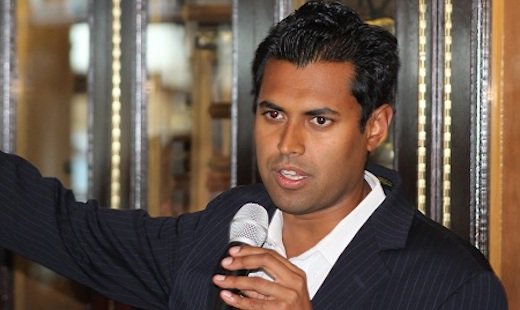
There has been a phenomenal growth of education infrastructure in the country in general and Punjab in particular. The number of private universities, including technical universities, have multiplied many times. The State is dotted with medical, dental, engineering, education and engineering colleges.

Education has it all. The simple test for gauging the progress of a state or a nation. is to look at its education standards. From Kindergarten to higher education, it is a single continuous process that chat while responding to societal and national requirements changes rapidly. From curriculums to methodology, from classroom teaching to use of technology and from textbooks to on training have all been part of the changing face of education. Today, education has become global as regional, territorial or geographical boundaries have become irrelevant in transfer and transmission of learning procedures and technologies.
The concept of tie-ups between local, regional and national institutions on one hand and foreign universities has become the trend of the day. A part of your degree course can be in the educational institution on your home turf while the other half or part of it can be in an overseas institution.
For many, education has grown beyond the sanctity of a sacred profession and become more of a business especially in the domains of providing quality education in sophisticated air-conditioned environs of lavishly built high rise or multistoried modern complexes.
While developing nations are facing a major problem of brain drain, the developed and advanced nations appear to be instant beneficiaries. Last week, the Indian Parliament was told that the number of students going abroad for post-secondary or higher education has been rising rapidly. The number has almost doubled in the last one decade.
There has been a phenomenal growth of education infrastructure in the country in general and Punjab in particular. The number of private universities, including technical universities, have multiplied many times. The State is dotted with medical, dental, engineering, education and engineering colleges.
Intriguingly, a large number of seats in these privately run or managed institutions remain vacant. The disturbing trend is that the number of these vacant seats has been increasing year after year.
Almost all major prestigious Boys Colleges in the State had to shed their “gender” to remain operational. They are now co-educational institutions with more than 50 per cent of their seats going to girl students. The exclusive girls colleges are doing well though their admissions, too, have come down over the years.
Though existing institutions and established universities are fighting a losing battle, private institutions and universities have shown phenomenal growth. Examples of Lovely Professional University, Chandigarh University or Chitkara University are all before us.
What is wrong with the State sponsored education system? Why is it losing out fast?
The reasons may be many.
After a long debate, the Union Government has given its nod for elite foreign universities to set up their Indian campuses. It has met with mixed responses. Some have hailed it while others have gone all out to assail this change in policy as a direct invasion of core educational values of the traditional Indian education system. The debate continues unabated.
Convinced that education is a flourishing business, many States, including Punjab, Haryana, Himachal Pradesh and even Union Territory of Chandigarh came out with the concept of Education Cities by providing the adequate basic infrastructure.
Besides major private players as mentioned above, a few others, claiming themselves to have pioneered quality education in the country, too, are spreading their network. Narsee Monjee Institute of Management and Amity University are among them.
Narsee Monjee Institute of Management (NMIMS) has set up its first campus in the country’s northern belt. Set up in Chandigarh, the first private deemed university in Chandigarh in 2021, it has been trying to make a name for itself with its state-of-the-art infrastructure, highly qualified staff, and unique pedagogy and curriculum in line with NMIMS.
The campus, says Dr Jaskiran Kaur, its Director, has brought new opportunities to the region by setting a new standard in higher education. It offers a variety of programs, including Commerce, Law, and Engineering, with the mission to prepare students to be lifelong learners through thoughtful mentoring, assuring their success.
NMIMS University’s one-of-a-kind approach to education is enhanced by its efficient multi-campus coordination, leading to seamless content delivery to improve students’ skills by harnessing their potential. The profound impact of learning at the University leaves such an indelible mark on the students that even after they leave the campus precincts, they continue to carry the legacy and culture of the institute.
Aligning with the University’s philosophy of holistic development, the campus also provides students with clubs and societies to participate in co-curricular activities, furthering their overall development and preparing them for the future.
The fee charged by NMIMS may be on a slightly higher side with an average of Rs 2.1 to Rs 2.5 lakh a year.
Dr Jaskiran Kaur emphasizes the overall development of its students that encompasses physical, intellectual, ethical, and philosophical enhancement. “India has always been at the forefront of quality education. This philosophy has been followed by India since the days of yore. At the Chandigarh campus, we believe in bringing the Indian ethos of teaching by following indigenous teaching methodology ingrained in our DNA,” she says.
Dr. Jaskiran Kaur expressed her pride in the rapid progress made by the campus and its standing as a leading higher education institution in Chandigarh. “Since its inception in the academic year 2021-22, it has made rapid progress, with a focus on employability rather than employment. Our faculty members are outstanding scholars in their respective disciplines, and the curriculum is developed through industry and academic integration. We are committed to continuing the more than 41-year-old legacy of NMIMS and its focus on providing quality education and excellence in technological and management research through our ever-evolving pedagogy. We believe in providing our students with the best resources and opportunities to help them succeed and become the leaders of tomorrow.”
Established in 1981, the Narsee Monjee Institute of Management Studies (NMIMS) is today recognized as a globally reputed university with strong industry linkages. It has duly earned every coveted accreditation and top ranking over the years, making its credibility unshakeable. It offers multiple disciplines across eight campuses that consist of 17 specialized schools, more than 17,000 full-time students, and about 800+ full-time faculty members, including ten faculty members with the Fulbright and Humboldt Scholarships for post-doctoral research.
(The author is a senior journalist)




Be the first to comment